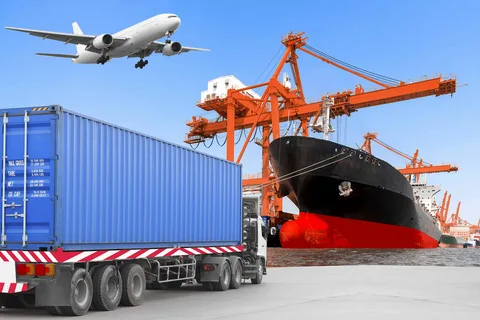Business
Comprehensive Guide to Shipping Cargo to Pakistan
Shipping cargo to Pakistan can seem daunting, but understanding the process can make it manageable. Whether you’re a business looking to import goods or an individual sending personal items, this guide will provide valuable insights into the logistics involved.
Understanding Cargo Shipping to Pakistan
What is Cargo Shipping?
Cargo shipping refers to the transportation of goods from one location to another, often across international borders. Different shipping methods and regulations can influence the logistics involved in this process.
Types of Cargo
When sending cargo to Pakistan, it’s essential to understand the categories of cargo you may encounter:
- General Cargo: Items such as electronics, clothing, and household goods.
- Perishable Cargo: Food items and pharmaceuticals that require special handling.
- Hazardous Cargo: Materials that pose risks and must adhere to strict regulations.
Choosing the Right Shipping Method
Air Freight
Air freight is the fastest method for shipping cargo to Pakistan. It is ideal for urgent shipments but can be more expensive than other options.
Advantages of Air Freight
- Quick delivery times
- High security for valuable items
- Real-time tracking capabilities
Sea Freight
Sea freight is a cost-effective choice for larger shipments. While it takes longer than air freight, it’s often more suitable for bulk items.
Advantages of Sea Freight
- More economical for large volumes
- Environmentally friendly options
- Suitable for heavy or bulky cargo
Land Freight
For shipments coming from neighboring countries, land freight may be an option. This is commonly used for logistics from countries like Iran or Afghanistan.
Advantages of Land Freight
- Flexible delivery schedules
- Direct access to inland regions
- Cost-effective for shorter distances
Key Considerations for Shipping Cargo to Pakistan
Customs Regulations
Understanding Pakistan’s customs regulations is crucial for a smooth shipping experience. Every shipment must comply with specific rules, including:
- Duties and Taxes: Import duties vary based on the type of goods. Be prepared to pay these fees upon arrival.
- Documentation: Ensure all necessary paperwork, such as invoices and customs declarations, are accurately completed.
Packaging and Labeling
Proper packaging protects your cargo during transit. Clear labeling also aids in the identification and processing of goods. Here are some tips:
- Use durable packaging materials appropriate for the type of cargo.
- Include labels with all necessary information, including contact details and handling instructions.
Insurance
Cargo insurance is essential to safeguard your shipment from potential loss or damage during transit. Consult with your shipping provider to explore suitable insurance options.
Working with a Freight Forwarder
What is a Freight Forwarder?
A freight forwarder is a logistics expert who facilitates the shipment of goods on behalf of shippers. They handle various aspects of the shipping process, including documentation and customs clearance.
Benefits of Using a Freight Forwarder
- Expertise in navigating customs regulations
- Cost-effective shipping solutions
- Time-saving for individuals and businesses
Tracking Your Shipment
Most reputable shipping companies provide tracking services that allow you to monitor your cargo as it travels to Pakistan. This feature ensures transparency and peace of mind regarding your shipment’s status.
Common Challenges and Solutions
Delays in Customs Clearance
Delays can occur for various reasons, such as incomplete documentation or inspections. To minimize the risk of delays:
- Ensure all paperwork is complete and accurate.
- Partner with a knowledgeable freight forwarder familiar with Pakistani customs procedures.
Damage or Loss of Cargo
While damage during shipping is not common, it can happen. To reduce this risk, make sure your cargo is well-packaged and consider purchasing cargo insurance for additional protection.
Conclusion
Shipping cargo to Pakistan involves careful planning and consideration of various factors, including shipping methods, customs regulations, and packaging. Whether you opt for air, sea, or land freight, working with experienced logistics providers can simplify the process and ensure your cargo arrives safely and promptly. With proper preparation, navigating the complexities of international shipping can be straightforward and efficient.
FAQs
1. How long does it take to ship cargo to Pakistan?
Shipping times vary by method. Air freight generally takes a few days, while sea freight can take several weeks.
2. What are the customs duties for importing goods to Pakistan?
Customs duties depend on the type of goods being shipped. It’s advisable to consult the Pakistan Customs website or a freight forwarder for specific rates.
3. Do I need a customs broker for shipping to Pakistan?
While not mandatory, using a customs broker can facilitate compliance with regulations and speed up the clearance process.
4. Can I ship personal items to Pakistan?
Yes, personal items can be shipped, but they must adhere to customs regulations and may be subject to duties.
5. What documents are required for shipping cargo to Pakistan?
Common documents include a bill of lading, commercial invoice, packing list, and customs declaration. Always verify specific requirements based on your shipment.

















